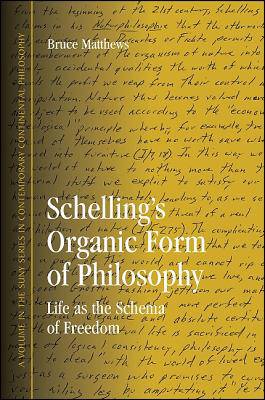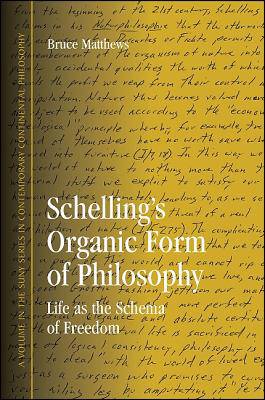
- Afhalen na 1 uur in een winkel met voorraad
- Gratis thuislevering in België vanaf € 30
- Ruim aanbod met 7 miljoen producten
- Afhalen na 1 uur in een winkel met voorraad
- Gratis thuislevering in België vanaf € 30
- Ruim aanbod met 7 miljoen producten
Omschrijving
Locates in Schelling a new understanding of our relation to nature in philosophy.
The life and ideas of F.W.J. Schelling are often overlooked in favor of the more familiar Kant, Fichte, or Hegel. What these three lack, however, is Schelling's evolving view of philosophy. Where others saw the possibility for a single, unflinching system of thought, Schelling was unafraid to question the foundations of his own ideas. In this book, Bruce Matthews argues that the organic view of philosophy is the fundamental idea behind Schelling's thought. Focusing in particular on Schelling's early writings, especially on Plato and Kant, Matthews explores Schelling's idea that any philosophical system must be perspectival and formed by each individual student of philosophy, providing a unique new understanding to an important and often overlooked figure in the history of philosophy.
Specificaties
Betrokkenen
- Auteur(s):
- Uitgeverij:
Inhoud
- Aantal bladzijden:
- 300
- Taal:
- Engels
- Reeks:
Eigenschappen
- Productcode (EAN):
- 9781438434117
- Verschijningsdatum:
- 1/02/2011
- Uitvoering:
- Hardcover
- Formaat:
- Genaaid
- Afmetingen:
- 155 mm x 231 mm
- Gewicht:
- 557 g

Alleen bij Standaard Boekhandel
Beoordelingen
We publiceren alleen reviews die voldoen aan de voorwaarden voor reviews. Bekijk onze voorwaarden voor reviews.









